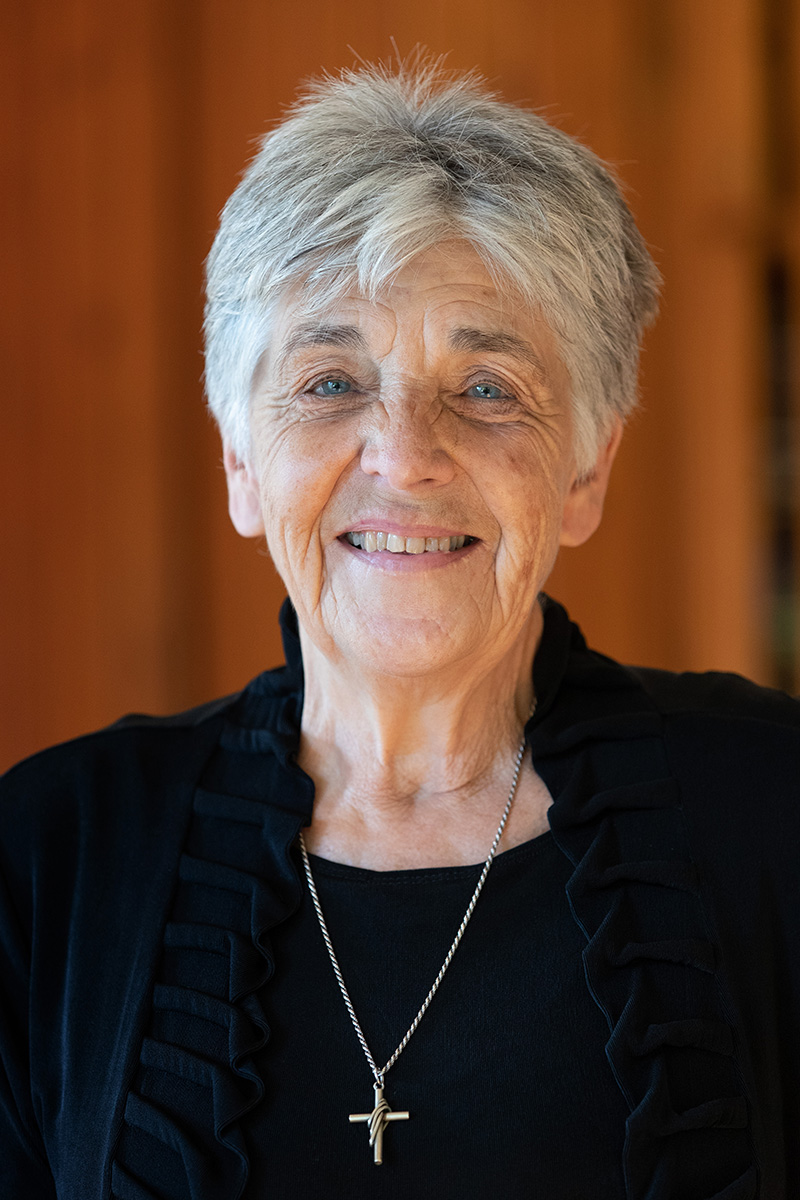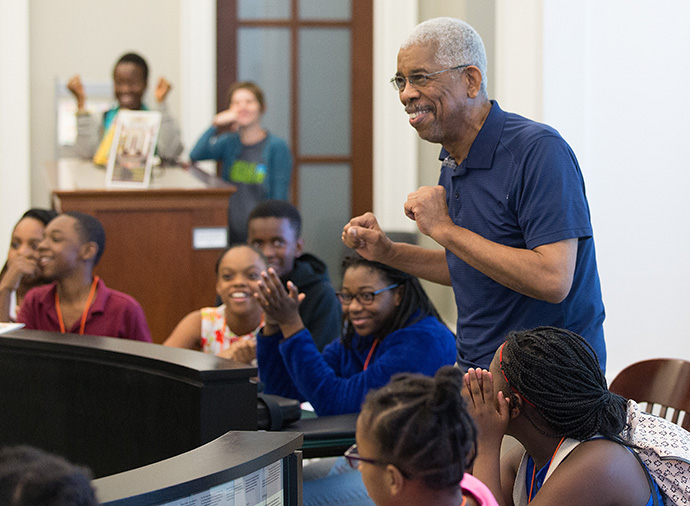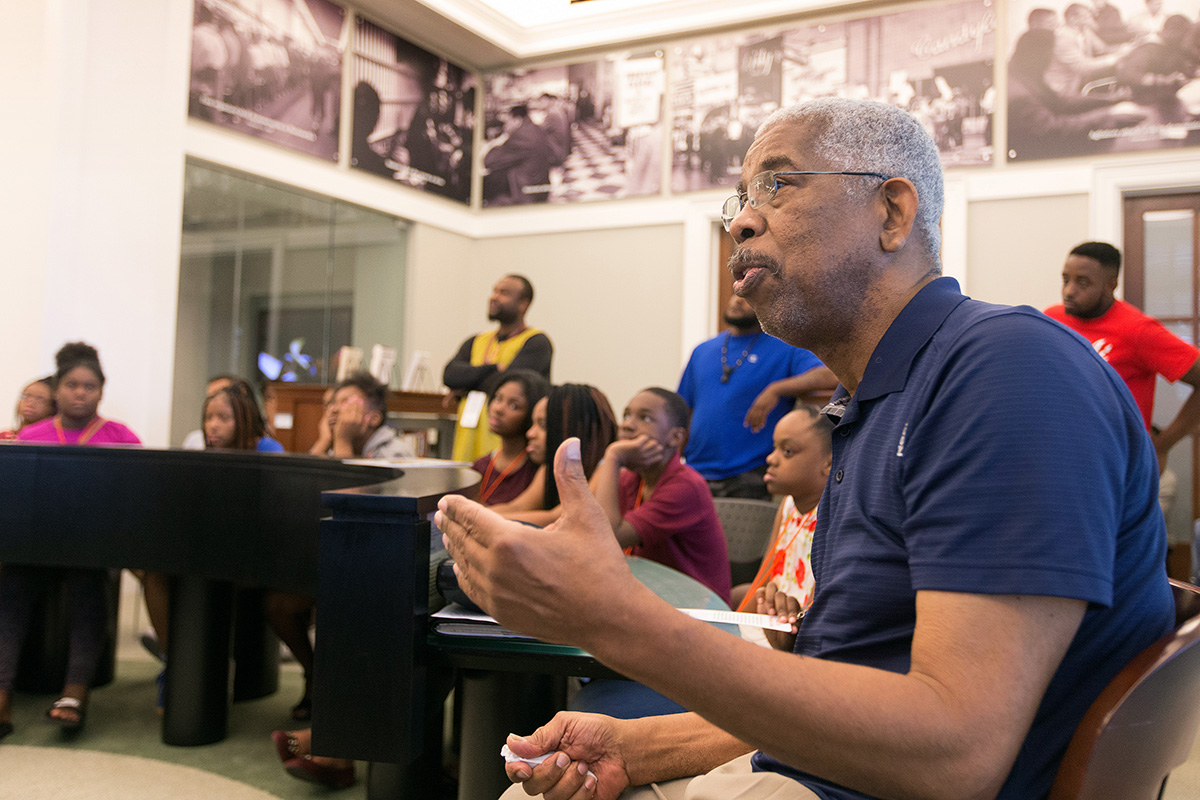Key points:
• Patton was a Freedom Rider in the 1960s and a passionate practitioner of nonviolence.
• He helped start Nashville’s first Children’s Defense Fund Freedom School in 2014.
• He delighted in sharing stories from his time with the Student Nonviolent Coordinating Committee, the Freedom Rides, the Nashville sit-ins and the 1964 Freedom Summer.

Photo by Mike DuBose, UM News.
Commentaries
Ernest “Rip” Patton Jr. was a truck driver and a drummer, a jazz musician and community animator, a storyteller and a singer, a 1960s Freedom Rider and a persistent, passionate practitioner of nonviolence. He was a beloved friend who offered wit and wisdom, generosity and grace, loud laughter and thick love to me and many over the years.
Not all that long ago, he called to see if I would help him learn how to kayak, saying he needed to increase his upper body strength. He may have been 81, struggling with several health challenges, but he never ever gave up.
During Nashville’s recent celebration of Rep. John Lewis, Rip’s longtime friend and fellow Freedom Rider, the city gathered for the opening of the “Rep. John Lewis Way.” I called Rip, thinking he had to be in the crowd somewhere, but by then, Rip was in the hospital.
I first met Rip Patton at his mother’s house. I had seen him playing the drums with the choir at Gordon Memorial United Methodist Church but had never had a conversation with him. As a truck driver, he was often on the road, out of town. But I had heard the stories — not only from his mother but from the community, from his companions in the Nashville nonviolent movement. And the same folks offered stories of his mother housing, feeding, cajoling, cautioning, warning and welcoming students who came to join the Nashville movement.
Unlike Rip, elegantly tall until the years began to bend his back, his mother, Fredina Shoulders, was tiny in stature. She was one of the “mothers of the church” at Gordon Memorial, always there for worship and Bible study, helping to create and then sustain Gordon’s community outreach program. She was there for me when I was at Gordon as an intern and then returned as associate pastor.
Like her son, she shared her large heart and fierce faith, her grit and grace, compassion and courage with friends and strangers, the church and larger community. Watching the two of them together was always a gift — her huge grin and thick pride, his joy at being home, hugging his mom.

Rip helped start Nashville’s first Children’s Defense Fund Freedom School in 2014. He delighted in reading to the young scholars and servant leader interns, sharing stories from his time with the Student Nonviolent Coordinating Committee, the Freedom Rides, the Nashville sit-ins, the defiance and huge hope embodied in the songs from prison cells and the streets during 1964 Freedom Summer. He became a living legend in Nashville’s Freedom Schools and offered ongoing accompaniment with young people who shared his conviction that a better world is still possible.
Civil Rights: Then and Now
As the Rev. James Lawson, the man John Lewis referred to as the “architect of the nonviolent movement,” noted in a recent conversation, Rip was “solid, a very generous and open man. He did good work in the Freedom Rides and interpreting the movement.”
Rip consistently challenged his audiences — whether the setting was in a lawyer’s boardroom, fancy hotel, high school classroom, college auditorium, national stage or the street corner — to become change agents, nonviolent organizers, relentless justice workers dismantling the systems of oppression and nurturing beloved community.
Rip did not share the stories to gain applause and affirmation or even to celebrate the past. He sang and told stories, shared words and his witness to gain co-conspirators in creating a common good, a world in which everyone “has a right to the tree of life.” He gave flesh to historian and civil rights activist the Rev. Vincent Harding’s declaration: “We are citizens of a country that does not yet exist.”
Rip invited us to sing with our lives Vincent Harding’s song “We Are Building Up a New World.” And he did. And he does. And I hear him still.
Wolf is director of Public Theology and Nonviolent Organizing for the Children's Defense Fund.
News media contact: Tim Tanton or Joey Butler at (615) 742-5470 or newsdesk@umnews.org. To read more United Methodist news, subscribe to the free Daily or Friday Digests.




